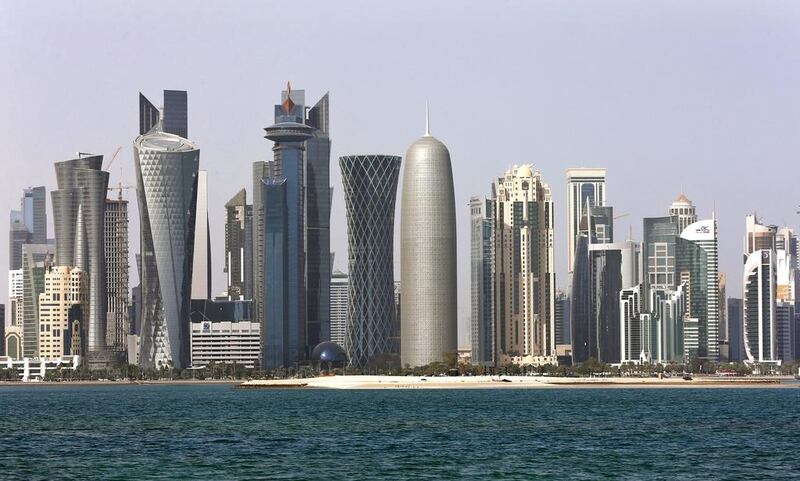Qatar is the country at the highest risk of having its ratings outlook downgraded, as it continues to feel the impact of a boycott by Arab nations, including the UAE and Saudi Arabia, according to S&P Global Ratings.
“Global downgrade risk remains muted, but Qatar leads with an elevated negative bias of 75 per cent,” the ratings agency said in a report. This compares to 16 per cent for the US, which is “relatively low”, the report said.
The high negative bias owes to S&P’s negative outlook on the sovereign (currently rated AA-), after Saudi Arabia, the UAE, Bahrain, Egypt, Libya and Yemen cut diplomatic ties, as well as trade and transport links, with Qatar on June 5 last year, S&P added.
“These ongoing diplomatic tensions should continue to pressure Qatar’s economic, fiscal and external metrics, especially if the boycott is tightened or prolonged,” the rating agency said.
The boycott has disrupted Qatar’s imports and led to the withdrawal of billions of dollars from Qatari banks by depositors from the four states. The damaging impact on the economy prompted the country to dip into its estimated $300 billion-plus sovereign wealth fund to protect its banks.
S&P’s negative outlook on Qatar has created a knock-on effect too and issuers with ratings tied to the sovereign have a negative outlook as well, “leading to the inflated negative bias”.
_______________
Read more:
[ GCC Sukuk issuance drops 15% in 2018 on rising cost of borrowings, S&P says ]
[ S&P Dow Jones Indices upgrades Saudi Arabia classification to EM ]
[ Moody’s and S&P downgrade Turkey on weak response to fiscal distress ]
_______________
Qatar in April issued a $12 billion conventional bond. However, the total volume of islamic bonds, or sukuk, issued by the state in both local and foreign currency has plummeted 50 per cent to $2.6bn so far this year, from $5.5bn in 2016, according to a report by S&P Global Ratings earlier this week.
The boycott means Qatari issuers can no longer rely on demand from regional Islamic investors, banks and other institutions in need of high-grade sharia-compliant bonds to meet liquidity standards, the report said.
Overall, the issuance of Sharia-compliant bonds in the Arabian Gulf has slowed by around 15 per cent in the first three quarters of this year and is likely to remain lower than $95.9bn in 2017 on the back of tightening international liquidity and rising borrowing costs as the US Federal Reserve hikes interest rates, the S&P report said this week.






